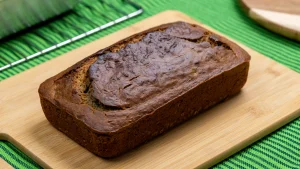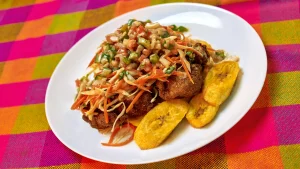The Poem of Honduras by Rafael Heliodoro Valle
By: Rafael Heliodoro Valle
To the great Maya ancestors who silenced the face of time with love, wisdom, and peace.
From the constant transparency of memory
I see your sweet and sad face, your mountains
With mists in the glory, midday sun
Your pine trees with balsamic whispers and fragrances
And in the background, the villages with lights in the nights…
I love you for being small, for being gentle and sensitive,
Roughly sweet like the golden pineapple,
From which orchards arise, with their concentrated honey
As if it were a synthesis of the dark summer,
Floating among the fruits that the greedy birds
-the most splendid in the world- peck
in the four seasons. Oh melodic Honduras,
sweet and small land, land of the indigenous face
and the Spanish soul; daughter of the admiral
who was blind at sea, as if he were looking for you,
his sense of smell. Oh earthly flower! Oh wandering island
of the high ocean! And he stayed there looking at you,
when your islands passed by igniting
his gaze of a wandering poet, and he named you
as he fell to his knees to give
the gratitude for having escaped from a long storm
in front of your coastline on one of those days
when even the seagulls remain suspended
between the water and the sky, searching for directions, blindly
in the harsh madness of the countless suns…
Oh white and blue land! Your flag now
reflects the purest essence of day and night,
the pristine innocence and the boldest dream
the magnificent freedom and the virgin purity
of the soul that surrenders to the perfect future,
forgetting the ominous days, the bloody
nightmares, the barbaric cannibal holocausts
that migrated from Africa, perhaps from Brazil
with howling cries and war drums,
until the European arrived in their caravels,
defying the electric storms, the winds,
against the coconut trees, dismantling sails, shouting: Beyond!
Yes, beyond, perhaps was the voice, Honduras!
Follow it, hear it, it sounds on the other side of the cliffs where
Seabirds pause and naval compasses
go mad and the wandering radar nets
fulfill prophecies. The new
Wind and sky scouts foreshadow
great days filled with possible happiness for you
There is an aesthetic in history
that has always preceded the advent
of golden auroras of splendor.
The compass of the training ship captures
the subtlest waves of the Agalteca iron
and the tremor of the nerves of the Gulf of Fonseca,
the promising gulf, in which it remains hidden
The treasure that the pirate could rescue who arrived on the back
Of the Pacific, from the south of Pizarro.
The traces are still seen
Of the great González Dávila in the brackish waters,
Of that Mediterranean which has many islands
That sing enchanted as if they were brides in a symphony
In which herons appear drawing Poems
Of statuary whiteness and exact silence.
The gulf is a treasure that guards the divers
Who believe in Atlantis, the divers
Who dream of sunken galleons and chests
Filled with the first silver from your mountains,
Who in its carved bottom like an hourglass hear
The silent tears of the miners fall,
Who rescued silver and received copper.
Oh, the dead! Your fists rose without remedy,
Without hope, you gave in the darkness of the tunnel
Blood and sweat, without being identified
In the old coin that said:
«The free offers peace,
but the deer never!»
Never! This impure word you shouldn’t repeat;
Don’t go back to the past, don’t look at your ignorance, for the future is in bloom
And you can still cultivate it. Don’t spend it, save it,
Not for sterile hatred; don’t go back to the past.
Which put you on the map with horrendous colors,
And stained your blue and your white and your pines,
Which are the spring. The image of the future awaits you
Like a groom, at your door, playing your guitar
With the neck adorned with distinguished jasmines.
Always be like the most sublime flower in the courtyard
Of your simple house: Jasmine is the purest
Expression of your heraldry: by day it proudly stands
In its whiteness, emitting its penetrating aroma,
Its song of a poet forever in love with sacred forms,
The girl who appears on the balcony and listens to the serenade
Filled with sublime music, with words that cannot be spoken,
And the sun above the towering virgin forests.
The sky, leaving petals to fall
Upon the chaste dreams of drunken larks,
Who have built their nests in the old amates
By the river that sleeps in the summer;
And it overflows in winter and gets angry, washing away the stone bridges
That were once children’s playthings in the ford;
The bridges of the Aztec, of the Indian
Who made cities out of words that have
A graceful accent and still resonate in our chained hearts
To the ancient music: Siguatepeque, town of girls,
Guaserique, melodic name, fresh, laden with fish and stars;
And some Mayan names that come walking
From far beyond the day when the stelae of Copan were born.
And since the day when
The god of the wind raised
His powerful torch; Ulua, Sula, Omoa, Danli and Oropoli, slowly slide
In the ear like droplets in the ancient
Cave where the ages are asleep
That witnessed the first pines, the first mahogany trees,
The ceibas with thousand-year-old roots,
That walk, walk, and walk.
With their hidden message to the land where
The Lord of Esquipulas sees the Indians arrive with their
Dances and unfurled banners, on the day of unanimous joy
When the grandchildren of the Aztec and Maya
Join hands and hearts
In prayer and tears
Like the amate tree with deep roots that sways
Its long and green hair over the waters of the rivers
That flow from the mountains with fragments of idols
And colors of orchids.
OH HOMELAND, OH MOTHER, adorn your attire
With zaraza and your humble smile more graceful,
Like the mothers who embroider
The intricate lace for the dress
That the child will wear at baptism
When the canary gives its golden trill
To the clear wind, at daybreak,
And the broken bell with its voice
Most hidden and full of sweetness calls everyone
To come to the celebration where
Godparents will pledge
To love each other forever, like the grandparents
Who had no hatred and clasped
Hands near the luminarias
Under the oaks filled with «parasites,»
Of the orchid girls who timidly peer
To watch the clouds pass by
From the green nests that, in the forest,
They improvise while fleeing from the hands
That seek flames in the tall flowers;
Your orchids manage your colors
Simply, like impressionist painters,
And like your woodpecker birds,
Who hide their savings
For the winter, among the rough trunks
Of the oak in which the elusive beehives
Stole their honey from the soursop, and from the pine
Their finest madrigal amidst the rain…
OH HOMELAND, always be kind
To your children, smile at them and tell them
Your humblest ambition, not your history
With cowardly blood and tears
Give them courage to face difficult days,
And the whole family is happy
And proud of you, OH Homeland, OH Mother!
Your valleys are the light in which the water
Turns blue, filled with melodic crystal,
The Zamorano and the Sula Valley,
Those of Sensenti, Quimistan, and Yoro,
The bountiful valley, the valley of the winter solstice
And the fertile and fruitful one
With a horizon that knows no bounds,
A land of bread without profit,
That only has the trill of the mockingbird.
And those silent, desolate, remote villages,
There in the deep depths, crowned with smoke,
And filled with girls who sigh without suitors,
And have sad faces like the Dolorosas
Who, in the dark temples, with their worn-out mantles during Holy Week,
Go on visits to St. John and show him
Daggers on their chests and roll their eyes.
The villages appear with their little houses, when
From the bell tower the angelus doves fly,
Spreading news from heaven: that the virgin
Now has a new mantle as blue as the sky
Of Honduras on the evenings when the river, in the distance,
Is a silver serpent undulating
To infinity. OH villages that are called
Cedros and San Antonio de Oriente, Valle de Ángeles, Yorito,
Dulce Nombre, La Rosa! Oh procession
Of men with the tinkling of ancient silver
Who, at times, on ghostly nights, slip away
From the clay pots where the stingiest rich buried their savings!
Under the clear, cool nights, the ocotal trees
With luminaries, watch the muleteers pass by
Going from town to town offering the things
That pale little girls covet as they sleep in the night
Hearing the cries of the Duende, the character
Who herds the cattle toward the coast where
Banana trees produce gold in abundance, like in the days
When they spoke of uniting the seas with the locomotive.
It was a great illusion, like the others you have had, because there is a wealth
In dreams, an inexhaustible mine, phantoms among the flowers.
Suddenly, the macaws pass through your sky proclaiming the twilight
With their fantastic colors; they bring you tidings
In the evening, at dawn, the sleepless birds,
Because you are a vast aviary with light; there is none in the world
According to Twomey, so beautiful and varied,
And they speak many languages, from the Mayan spoken
By the poets of the Popol Vuh to the Lenca and Chortí, birds that still listen
To the exalting voice of the God of the wind, the prophet
Who will remain on his pedestal until the air dies of love in the mountains
Where the quetzal, the jewel with wings, has a nest
Not of precious stones but of delicate herbs,
And the canary with a golden chest, which when it sings
Mimics the intimate water that drills through rocks and penetrates the soul
Of fallen gods, then countless children with wings pass by:
They are the angels of the Honduran aerial morning, the angels
With bubbling names: the calandria, the oriole, thrushes, clarinets,
That symphonic choir that leaves the clouds to offer concerts
To the towns of Honduras, springtime towns in perpetual
Rain, towns of shepherding, each with orchards that smell of guavas
And fragrant blossoms:
Towns where Love builds its honeycomb,
And bees guard their honey without hurry
And at the foot of the mountain there is a gentle breeze;
Praise to the beauty of your sugarcane fields,
Of swords that plunge into impure nights,
Alas for the poor victims of their deadly claws,
Of the evils that drink from those springs
The diabolical poison of ripe canes…!
In the square, on nights of serenades,
The philharmonic band appears, unearthing waltzes
With cobwebs, and in the night, at the «wake,» stories are told
With great merriment to the tune of a succulent dinner
And the barbaric liquor made from sugarcane,
Oh! It is a dead child,
A little angel,
Who escaped from the world, as the doctor didn’t arrive in time;
The neighbors gossip in their own way
About the incident, and the grandmother
Cuts fragrant herbs, sprinkling them on the floor
Crossing herself to ward off evil spells; they bury the angel
On a hill, while guitars play and fireworks explode,
The rain is falling with its slow tears,
Falling onto the courtyards with ripe grapefruits,
Falling… it keeps falling… dripping day and night;
Suddenly, a chant is heard, erupting in a cry:
«Where is Rosas?
-He is in the garden
Cutting the rose,
Planting the Jasmine.»
Between Jasmine and rose, a machete appears,
Unexpectedly at the wake.
The machete is peace in reverse; the knife hides
At the opportune moment; there are festivals of Moors and Christians,
Where the indigenous people dance
For St. James; and there are some fights
Without blood, where the Moors
Flee, but the Apostle remains eager
To fight, the indigenous people
Have hidden machetes and knives, the sword has remained
In the family museum next to the clothes
With the fine scent of violet root in the trunks
That hold abolished enchantments and the saints
In carved figures long ago crafted by Guatemalan artisans,
They stand alone in a corner of the living room with a sentimental air,
The same air that St. Anthony possesses,
The beautiful patron saint of eligible young women.
(Anthony is truly punished
If things don’t appear.)
The rain is falling tremulously upon the blue memories
Of the grandmother who has inconsolable nostalgia upon opening the trunk
With mirrors, memories, and garments from the blooming yesteryears,
The shadows of the kisses that one day,
A miraculous day, when least expected
After leaving the mass, she saw the suitor, who at Easter,
Saw her pass, crisp, smiling, full
Of grace in Love, and the next day
They joined their hearts with their hands, there was
A unanimous jubilation in the bells; it was
When Father Reyes blessed the betrothed
Beneath the dome gilded by time.
Suddenly, we have arrived
At the city of Reyes and Soto and Rosa,
The Spanish city that still has alleyways
And discreet windows through which intruding pigeons
Descend from the hills,
Summoned by the landscape that San Miguel watches over and cleanses
With his sword of fire,
Which fits perfectly within the finest rose that,
On the wall, draws its ignited silence,
And remains in the air forever proclaiming the eternal in the ephemeral.
The rose is your word, my Tegucigalpa,
City among clouds, plow of loves,
City of stone and flowers,
Of colorful stones – more like gemstones –
House of spring and house of roses,
Every time they shine in my intimate sanctuary.
There, where the carnation raises its purple
Beauty with dew and offers the diadem
Of its past aroma, its aroma that peeks through
In the verses of Reyes, the civilizer,
Greater than the warrior who halted his horse
In the Plaza Mayor,
And upon seeing him alone, the crowd exclaims: «Oh Father,
Protect us with your sword, the illustrious sword of the law!»
In your bronze roses, Morazán has ignited
His perpetual miracle; but the marble of Reyes
Is white, pure white, as pure
As the white of the flag
At the top of the wind that descends from the clouds traveling toward the sea,
Or that ruffles the waters of Yojoa, the great Demetrian
Crystal eye that has fallen upon the blind landscape of the light that has touched
The centennial oaks, and then it stops
Farther away, at the back of the white houses,
As white as the shadow of spotless days,
Not the days of the past that were black,
When in the caves,
The coyotes roared, which, with human voice,
Were the living image of the owners of livestock riches
And the beautiful fruitful joy and the slumbering
Silence of the fields that blood
Soaked uselessly, without giving way to progress.
Do not look at the past,
Submerge it in the shadow of oblivion;
Your salt statues have melted,
And your ferocious men, rusted
«Cortacabezas,» the fierce bandit,
Died with the «lucero chilatero»
Over Olancho, and also the «Cinchonero»
Floats downstream, in that river
That flows to the sea of infamy, and meanwhile
Another bandit, an angel, emerged with his song:
«Reyes, the one with the dew statue!»
Invocation to the Grandparents
Oh Mayan grandparents! You were the first
men of the sky and corn,
you are our roots.
You witnessed the birth of countless stars
from the towers. I am made of your clay
and your sky. On your shoulders
you carried stones with dignity,
and your cornfields were emeralds
interlaced with golden buds.
Your blood gave us the great people
where men were crystalline:
a delicate and transparent nation
that knew how to love peace, and with tenderness
chiseled its culture in basalt,
sitting in the shade of the pines.
Give us courage and love, give us temperance,
give us only pure thought
to rediscover hope
and possess the key to the future.
Oh, parents, hope is not inert,
nor is all hope lost;
the image of Death
will not tarnish the mirrors of life.




